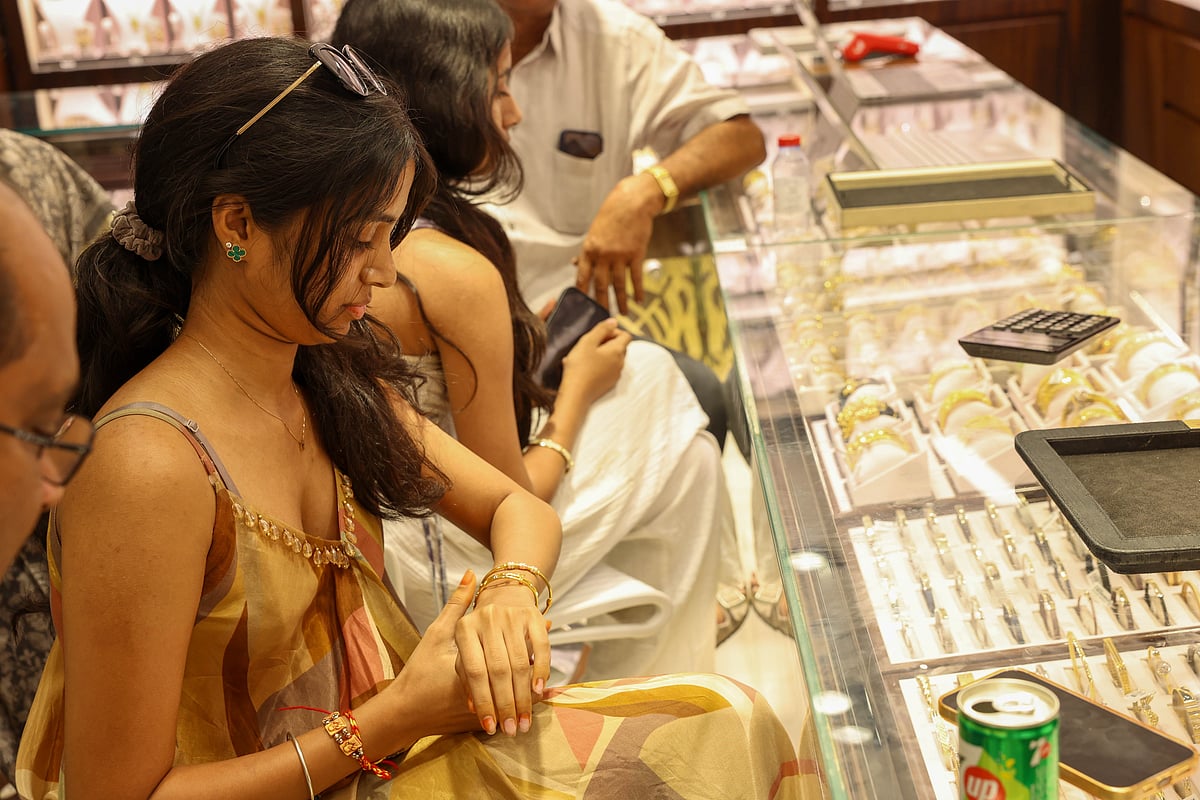Buying gold in the UAE? Here's what hallmarking rules mean for shoppers
Dubai gold buyers benefit from strict hallmarking rules that ensure quality, authenticity

Dubai: Dubai’s gold markets are famed for competitive prices and trust—but the real confidence comes from the tiny engraved stamp you’ll find on every piece of gold sold legally in the UAE.
That stamp is a hallmark, and it’s your assurance of purity, authenticity, and fair trade. (Check latest UAE gold prices here, alongside prices in Saudi Arabia, Oman, Qatar, Bahrain, Kuwait.)
Here’s what UAE hallmarking rules mean for you as a gold buyer—whether you're investing in bullion or shopping for jewellery.
1. Why hallmarking matters
The UAE, especially Dubai, enforces strict hallmarking standards to protect consumers. Any gold item sold by licensed retailers must carry a certified hallmark approved by the Dubai Central Laboratory (DCL), part of Dubai Municipality.
This hallmark certifies:
The karat (purity) of the gold
The manufacturer’s mark
An official certification number
The hallmark guarantees that the gold you’re buying is genuine, correctly labelled, and meets UAE purity standards.
2. Know your karats: What the stamps mean
Each hallmark also tells you the purity level of the gold:
24K (99.9%) – Found in gold bars and coins, not ideal for daily-wear jewellery
22K (91.6%) – Common in jewellery, strong enough for regular use
21K (87.5%) and 18K (75%) – Often used in intricate designs and pieces with gemstones
If you see "916" stamped on jewellery, it means the piece is 22K gold (91.6% pure)—a mark trusted by gold buyers, especially in India and the Gulf.
3. Look for Bareeq Certification
Retailers who comply with all quality control regulations may also display a Bareeq Certification. This is awarded by DCL and signals adherence to the highest standards in product quality, pricing transparency, and ethical trading practices.
4. How gold is sold transparently in Dubai
When you buy gold in the UAE, you should always receive:
A purity certificate
A detailed invoice listing:
Gold price per gram
Total weight
Making charges (craftsmanship costs)
VAT (if applicable)
Gold price updates tied to international markets, displayed live in-store
Investment-grade gold (coins and bullion) is typically exempt from VAT, while jewellery may carry VAT—but tourists can claim refunds through the UAE's VAT refund scheme.
5. Smart buyer checklist
Here’s how to shop confidently for gold in Dubai:
Check the hallmark – Always inspect the stamp or ask the seller to point it out
Ask for a free purity test – Many shops offer electronic or XRF purity tests
Shop at trusted locations – Stick to reputable retailers in malls or traditional souks like Deira Gold Souk
Understand making charges – These vary and can be negotiated, unlike the fixed global gold price
Get all documentation – Keep certificates and invoices safe for resale or returns
Avoid “too cheap” deals – Suspiciously low prices may indicate fake or under-karat gold
A trusted gold ecosystem
Dubai has built a reputation for quality and trust in gold trading. The Dubai Central Laboratory conducts unannounced inspections, calibrates weighing scales to milligram accuracy, and enforces compliance among retailers.
With hallmarking rules in place, gold buyers in the UAE enjoy transparency, traceability, and true value—whether they’re shopping for style or investing in security.
Sign up for the Daily Briefing
Get the latest news and updates straight to your inbox
Network Links
GN StoreDownload our app
© Al Nisr Publishing LLC 2026. All rights reserved.
